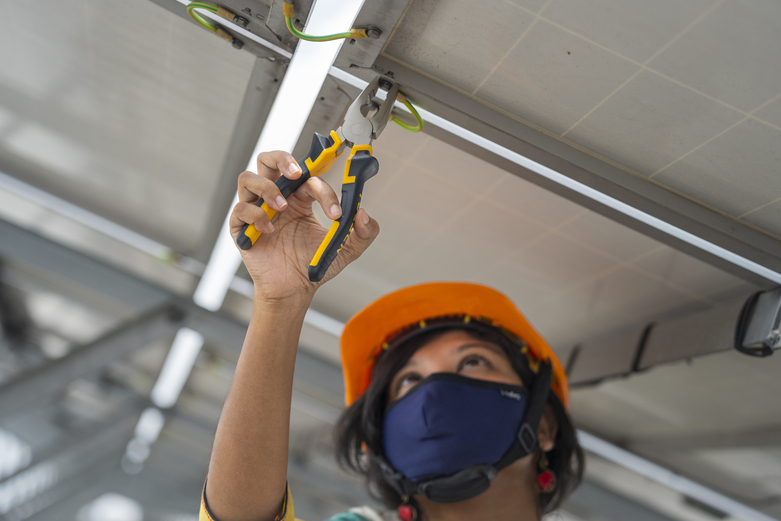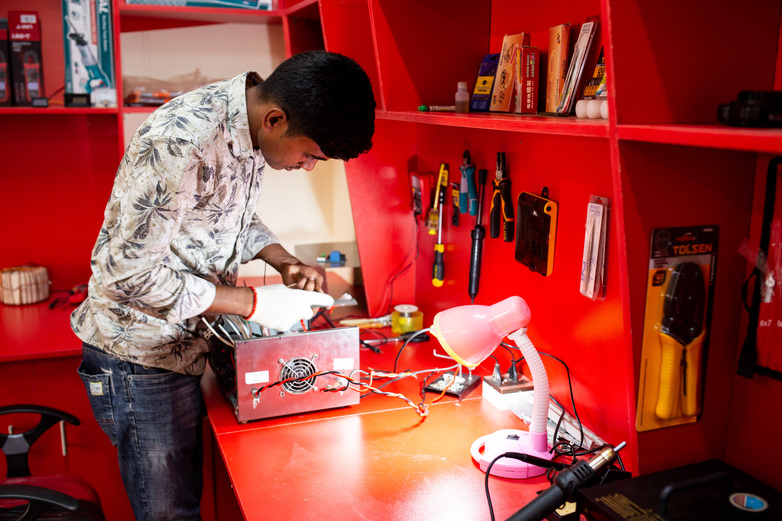Training specialists for the energy transition in Bangladesh
Skills Development for Sustainable Energy Solutions (SKILLS4SE)
-
Commissioning Party
German Federal Ministry for Economic Cooperation and Development (BMZ)
-
Country
-
Lead executing agency
More
-
Overall term
2023 to 2026
-
Products and expertise
Economic development and employment

Context
Rapid population and economic growth in Bangladesh is creating a continually increasing demand for energy. At the same time, the Bangladeshi Government is attempting to transform the energy sector and expand climate-friendly energy solutions. There are not enough specialists and their training is inadequate for this task, however, which constitutes a key obstacle to the national energy transition. Bangladesh therefore needs to improve training and continuing professional development in the energy sector and gear it more heavily towards the needs of the labour market.
In the medium to long term, well-trained specialists can help improve the investment climate and enhance the competitiveness of businesses working on climate-friendly energy solutions. Qualified specialists thus contribute to the success of the energy transition in Bangladesh.
Objective
The quality of training and continuing professional development on energy efficiency and renewable energies has improved and it is geared towards demand on the labour market.

Approach
The project is assisting the Bangladeshi Government in reforming and expanding training and continuing professional development on climate-friendly energy solutions. To do so, it promotes dialogue and cooperation between those responsible in the energy and education sector and other relevant public and private actors.
The project cooperates closely with the private sector to gear training towards the needs of the labour market. It teams up with vocational colleges and businesses to develop modules with a practical orientation for in-company training and continuing professional development, for example.
In addition, the project advises the relevant ministry and vocational colleges on developing and certifying curricula and training teaching staff; it also collaborates with its partners to pilot new training concepts.
To ensure the success of an environmentally and socially just structural transition, the project focuses in particular on improving access to technical occupations in the energy sector for women, promoting gender equality in training and making courses digital by default.
Last updated: August 2023





